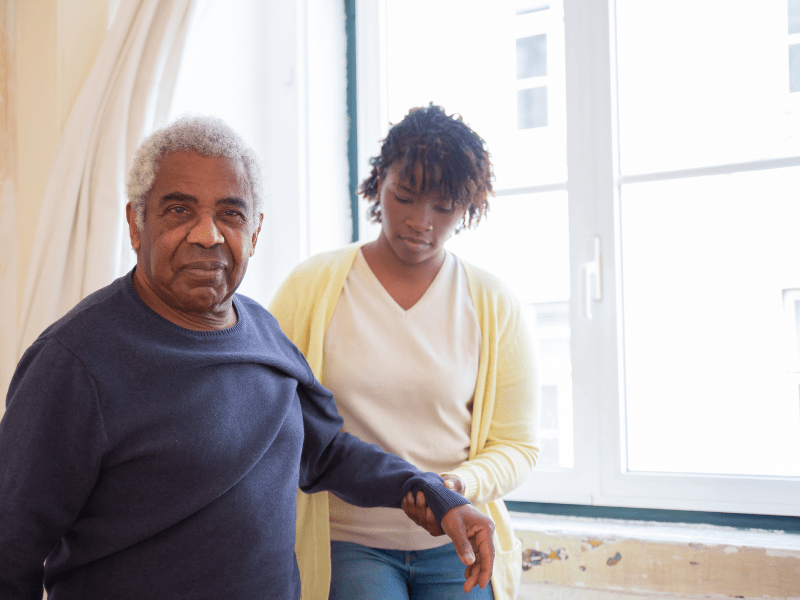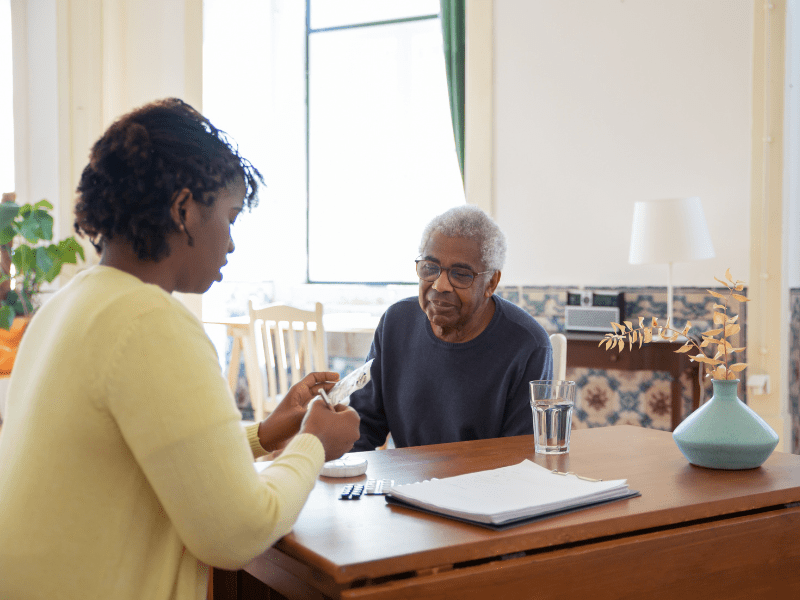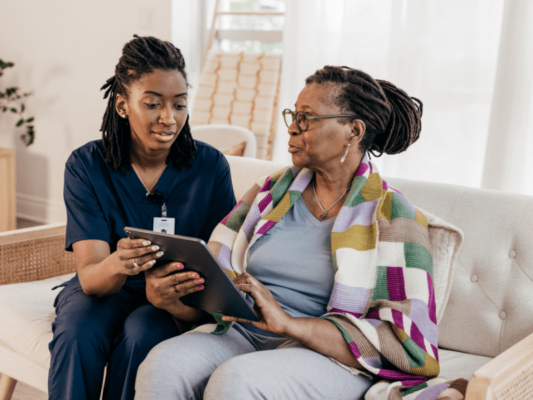If your senior loved one experiences a stroke, seconds count. The sooner they can receive treatment, the better their outcome. Let’s look at the signs of a stroke and how to recognize them so you can ensure your loved one receives the care they need in the event of a stroke.
Signs of a Stroke in Men and Women
It’s important to recognize the most common symptoms of a stroke. Men and women tend to show the same symptoms. These include,
- Sudden weakness or numbness in the face, arm, or leg, often on one side of the body
- Sudden onset of confusion, trouble speaking, or difficulty understanding what someone is saying
- Sudden vision problems – trouble seeing – in one or both eyes
- Sudden difficulty with walking or dizziness, loss of balance, or lack of coordination
- Sudden severe headache with no known or clear cause

Act F.A.S.T. to Identify a Stroke
The CDC uses FAST to help people recognize and react to the signs of a stroke. Treatment for a stroke is most effective if it begins within 3 hours of the stroke beginning, so identifying symptoms and getting help (calling 911 for emergency assistance) is important. To act FAST, remember,
- F – Face: Ask the person to smile and look to see if one side of their face droops
- A – Arms: Ask them to raise their arms and look to see if one arm begins to drift down
- S – Speech: Ask them to repeat a simple phrase and listen for slurred or strange speech
- T – Time: If they show any of the above symptoms, call 911 immediately
Remembering FAST to help you identify and respond to the signs of a stroke can be lifesaving for your senior loved one.
What If Symptoms Go Away?
Sometimes a person may have stroke symptoms that go away within a few minutes. Known as a mini-stroke or transient ischemic attack (TIA), this can still be a sign of a severe condition. If your senior loved one experiences TIA, it’s important to contact their doctor immediately.
Importantly, if your loved one is showing signs of a stroke, don’t wait to see if the symptoms go away. Follow the FAST technique above and call 911 if you identify that they are showing signs of a stroke. If the symptoms go away while you’re waiting for emergency care personnel to arrive, you can advise them and your loved one’s doctor of what happened and determine the next steps for your loved one’s care.

Team Up with a Senior Care Professional in Washington DC
Our expert caregivers at VMT Home Health Agency understand the signs of stroke and respond quickly to ensure the seniors they care for receive the treatment they need. Whether you need part-time, full-time, or respite home care in Washington, DC, we can help you provide the care your loved one needs.
Are You Looking for In-Home Senior Care in Washington DC?
If you’re looking for someone to help with in-home care, then contact us. We’ll be happy to review our services with you and help match your loved one to one of our expert caregivers.





